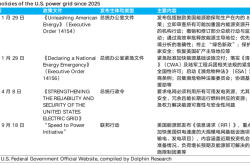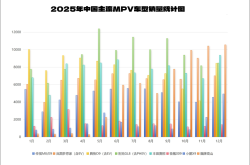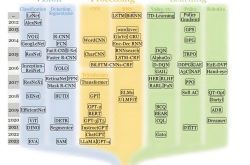Meituan Prepares for Epic Internal Competition
![]() 05/28 2025
05/28 2025
![]() 694
694
Wang Xing, the founder of Meituan, who had been silent for quite some time, finally emerged. During Meituan's first-quarter earnings conference on the evening of May 26, amidst the fierce competition in the food delivery industry and the impending battle in instant retail, he took a firm stance, stating, "We will take all necessary measures to emerge victorious." Consequently, the top leaders from Meituan, JD.com, and Taobao and Tmall have all gathered, poised and ready. In a war where multiple parties fight for various reasons and the consequences of failure are unbearable, the investment of more resources often makes it harder to halt. If they falter, they risk becoming the spoils of war for others. It appears that an intense game has begun.
I. Meituan's Preparations for Battle are Nearly Complete
According to Wang Xing, Meituan's pre-war mobilization is almost ready. In the first quarter of 2025, Meituan's overall revenue was 86.56 billion yuan, a slight decline from the previous quarter but an 18.1% increase year-on-year. Operating profit exceeded 10 billion yuan, a 46.2% increase year-on-year. Both revenue growth and profit performance surpassed market expectations. The consistent profitability of core businesses, coupled with robust cost control, has laid a solid foundation for Meituan, indicating that the intense preparations of the past quarter are nearing completion. In the first quarter, Meituan continued to mine its core local business, including food delivery, travel, and flash shopping, with division operating profit reaching 13.5 billion yuan, a 39% increase year-on-year.
Additionally, in this quarter, Meituan's new businesses increased revenue and reduced losses, with losses narrowing to 2.3 billion yuan, and the drag effect diminishing. Notably, in the first quarter of 2025, Meituan's online marketing revenue growth rate declined quarter-on-quarter, and the growth rate remained lower than its own delivery and commission revenue growth rates. In a way, this shows that at the start of 2025, with food delivery platforms openly declaring war on each other, a single platform is no longer the only solution. Meituan merchants have reduced their advertising investments and gradually adopted a wait-and-see attitude. Furthermore, in the first quarter, Meituan's operating costs decreased and operating efficiency improved, allowing Meituan to increase operating cash by 10 billion yuan during the quarter.
Moreover, as of March 31, 2025, Meituan's cash and cash equivalents and short-term financial investments amounted to 115 billion yuan and 65.4 billion yuan, respectively. Especially in terms of cash flow, compared to the end of 2024, Meituan increased by over 40 billion yuan in the first quarter. The cash reserves exceeding 100 billion yuan ensure adequate funds during the food delivery subsidy war. It's also worth mentioning that cost control has been effective. In the first quarter, Meituan's operating costs increased by 13.8% year-on-year to 54.1 billion yuan, with the growth rate continuing to be lower than revenue, and the cost rate decreased by 2.3 percentage points year-on-year to 62.6%. In terms of "three expenses" (marketing expenses, research and development expenses, and general and administrative expenses), Meituan's marketing expenses, research and development expenses, and general and administrative expenses in this quarter were 47.6 billion yuan, 5.8 billion yuan, and 2.6 billion yuan, respectively, with year-on-year changes of 12%, 15.4%, and 14.3%, respectively, and all growth rates were lower than revenue. Continuous cost reduction and efficiency enhancement also demonstrate Meituan's increasing caution regarding cost control.
It's worth noting that if we examine cost changes from the fourth quarter of 2024 to the first quarter of 2025, while Meituan's overall revenue declined by only 2%, its marketing expenses and general and administrative expenses both declined by about 10%. This means that in the first quarter, Meituan did not increase user subsidies but rather decreased them. This could indicate two possible trends for Meituan in the past three months: one is that JD.com's high-profile entry into the food delivery market is not viewed as a long-term challenge by Meituan. Another explanation is that Meituan is "hibernating" in the first quarter to accumulate strength and prepare for subsequent strategic attacks. However, as JD.com and Ele.me have both sounded the subsidy war, Meituan's wait-and-see attitude has begun to waver.
In the first quarter, Meituan no longer disclosed specific changes in the number of food delivery orders, and the once highly anticipated "Pinhaofan" only appeared once in Meituan's financial report. It's now difficult to track the specific effects achieved by Pinhaofan, which Meituan used to drive traffic and expand business growth in food delivery, during the quarter. Therefore, Wang Xing, who does not often speak out, finally made intensive statements at the first-quarter earnings conference and issued a military order for the upcoming subsidy war: "We don't know how long the new entrants' internal competition will last, so we cannot currently provide accurate financial guidance for the second quarter or the rest of the year, but we will continue to defend our market share."
II. The Offensive in Instant Retail
According to normal logic, all long-term business competitions ultimately revert to the original business logic. Currently, Meituan's food delivery fundamentals still have a significant advantage over its competitors in terms of the accumulation of basic capabilities led by transportation capacity construction, which explains why, at least in the first quarter, Meituan's core local business revenue and profit could still perform robustly. The uncertainty lies in the intensity and duration of this subsidy war and its future impact on Meituan. In fact, Meituan has now conservatively stopped giving full-year financial guidance. However, over the years, Meituan led by Wang Xing has experienced multiple fierce subsidy wars. Unlike being overwhelmed by JD.com in public opinion this year, essentially, Meituan has always been an offensive-oriented company that prefers to work hard and quietly make money most of the time.
This is particularly evident in the field of instant retail. Compared to the relatively passive defensive subsidy war, Meituan has already invaded JD.com's territory in instant retail through innovation in the supply-side model, especially in the 3C field. By the end of the first quarter, Meituan had seen significant growth in multiple categories, including beverages and snacks, 3C products, household appliances, beauty and personal care products, etc., and the daily order volume of non-catering instant retail had exceeded 18 million orders. As of the end of March, the cumulative number of Meituan Flash's transaction users exceeded 500 million, with "post-90s" young users accounting for 66.6%. From this perspective, with "local supply + instant delivery," Meituan's instant retail is conducting a comprehensive siege on traditional e-commerce, not only directly threatening JD.com's territory but also preventing Jiang Fan's Taobao and Tmall from adopting a wait-and-see attitude. Taobao and Tmall, as well as JD.com, are also facing a fierce competitor in the post-Pinduoduo era.
At this point, JD.com and Taobao and Tmall are actually on the defensive in instant retail.
For Jiang Fan, with Flash Deals and Ele.me's transportation support, Alibaba's battle in instant retail is not just about traffic but also about proving its strategic gamble: Over the past few years, similar to the decline in JD.com APP traffic, Taobao and Tmall, which also suffer from traffic anxiety, urgently need high-frequency to drive low-frequency. This battle in instant retail is a must-fight.
However, when long-term losses in distant-field retail have not yet been resolved, Alibaba's large-scale entry into the instant retail battlefield at this time, especially when competition becomes fierce, the most direct counterattack is still subsidies and money-burning, which will also bring pressure on the financial side. In the first quarter, the local life business led by Ele.me lost more than expected, reaching 2.32 billion yuan. Moreover, compared to previous quarters, the loss in this quarter increased significantly, and the pressure of the instant retail subsidy war has already emerged. The greater uncertainty lies in the duration of the subsidy war, and when the intensity of competition intensifies, whether the once marginalized Ele.me, coupled with the inevitable large expenditures, will shake Alibaba's recent ambition for change, or whether it will reappear the group's major strategic decisions swaying back and forth in recent years, may still need to be observed.
The situation at JD.com may also be unoptimistic. Over the past few years, JD.com's e-commerce has fallen into a low-price internal competition. To stabilize its fundamentals and attract more traffic, it has had to seek change and innovation. Therefore, the food delivery business that was high-profile launched and vigorously promoted since 2025 is JD.com's attempt to use high-frequency demand to drive low-frequency electronic consumption and increase user stickiness, "pulling the high to the low" in terms of traffic and revitalizing its APP's traffic. The good news is that after the disclosure of the first-quarter financial report in 2025, Xu Ran, CEO of JD.com Group, talked about the latest progress in instant retail, which also confirmed that JD.com's food delivery business has driven new users and improved the overall traffic conversion rate of the JD.com App. On this basis, the year-on-year growth rate of JD.com's active users in the first quarter reached 20%.
It's worth noting that whether it's the continuation of the low-price strategy in e-commerce or the large amount of funds that have been and will be invested in the food delivery business, it has begun to put pressure on JD.com's financial side. As a result, JD.com's food delivery business also increased the losses of new businesses in the first quarter. The operating expenses of new businesses increased by 65.3% year-on-year from 1.51 billion yuan in the first quarter of last year to 2.49 billion yuan in the first quarter of this year, and the operating loss expanded from 670 million yuan to 1.33 billion yuan, nearly doubling. This also means that the growth rate of JD.com's new business rate actually far exceeds the business growth rate. Moreover, in the first quarter of 2025, JD.com's new business operating profit margin reached -23.1%, a significant decrease from -13.8% in the same period of 2024. Considering that JD.com's food delivery business only started intense actions in February this year, and with competitive factors in the second and third quarters, JD.com's investment in the food delivery business will increase significantly. Such losses will continue and amplify in the future.
Currently, JD.com's increased investment in new businesses such as food delivery is gradually consuming its cash flow: As of the end of the first quarter of 2025, JD.com's cash, cash equivalents, and restricted cash have decreased by 9.659 billion yuan compared to the end of 2024.
III. No One Can Afford to Lose, and No One Will Stop?
The fiery competition in the internet business world, with lively scenes and flying flags, has not been seen for a long time. Facing competition, Wang Xing of Meituan said that they will spare no expense to win this food delivery competition and that low-price "internal competition" is unsustainable. He also said, "Currently, we are the largest participant in the food delivery industry, having been deeply involved in this field for over 10 years and experienced many fierce competitions in the past 10 years. Therefore, we believe that this time Meituan is still in the most favorable position and can win again."
"After 2025, to boost the growth of the instant retail business, Liu Qiangdong aggressively went deep into the front lines, personally commanding and deploying, showing a huge determination with no ceiling. To win this critical battle for traffic and growth, Liu Qiangdong can only win and has no room for loss. Since his return, Jiang Fan of Taobao and Tmall has formulated a growth-first strategy. He is better at planning and then acting. After experiencing frequent adjustments in tactical actions for a period of time, with JD.com fully diving into the instant retail battle group this time, it is also a critical battle to reprove himself and is related to the future growth of Taobao and Tmall.
In a war where multiple parties fight for various reasons and the consequences of failure are unbearable, and where it's difficult to stop once resources are invested, when to stop is actually akin to a squid game. Once they falter, they will become the spoils of war for others. At this stage, none of them show any signs of stopping.






